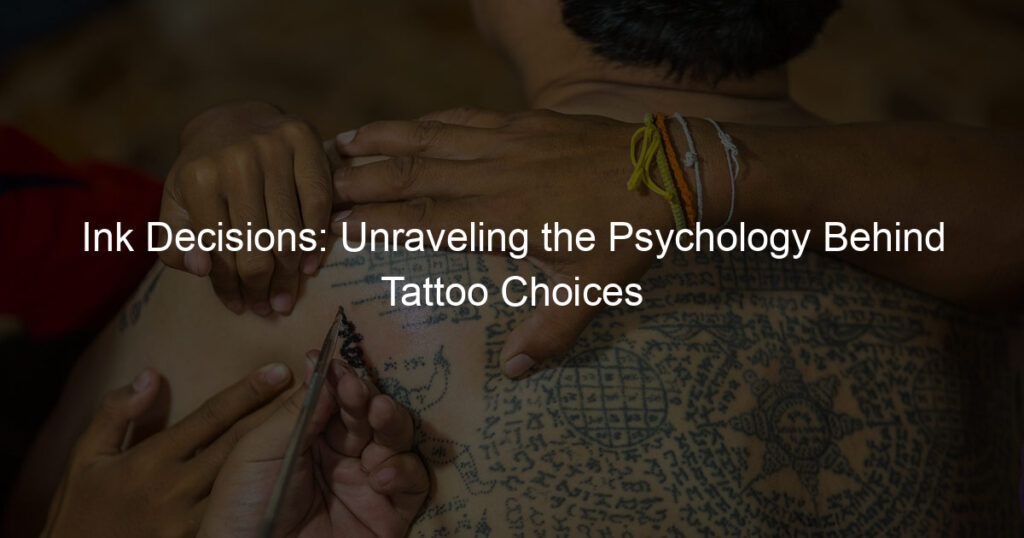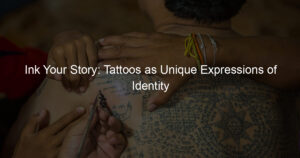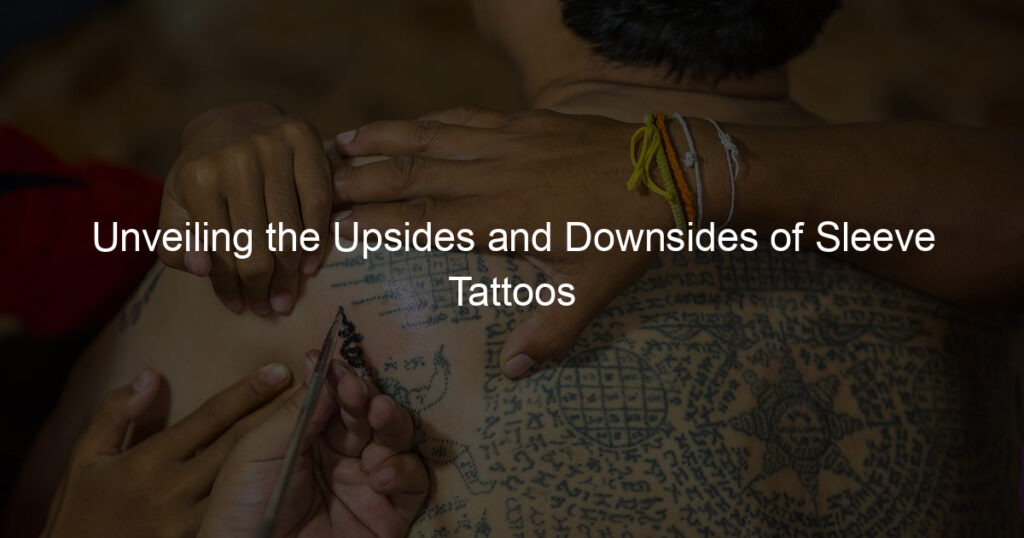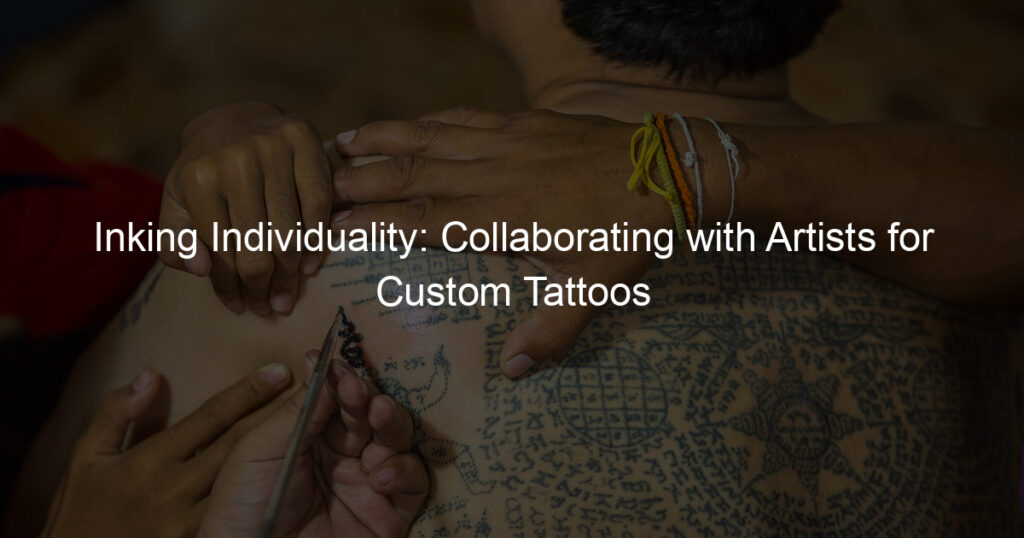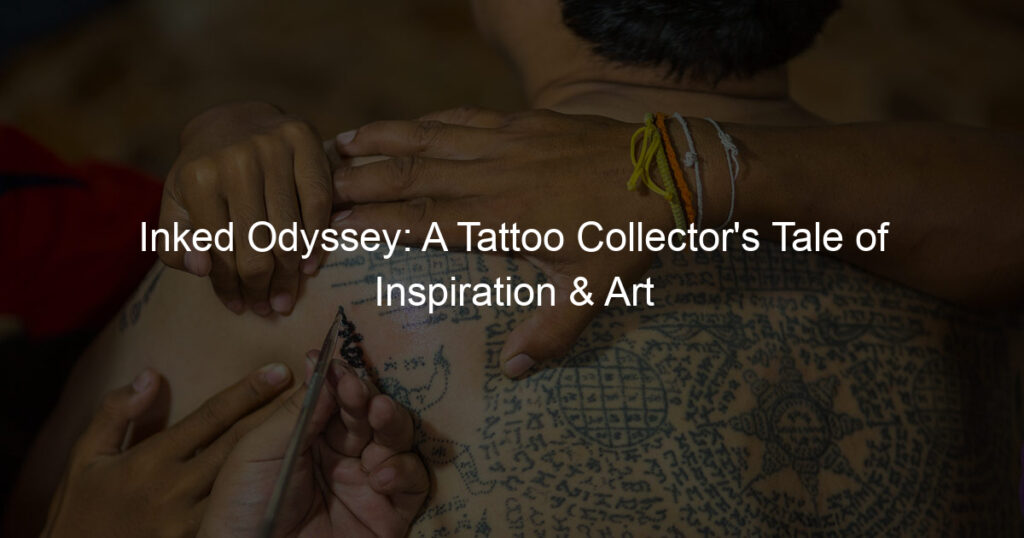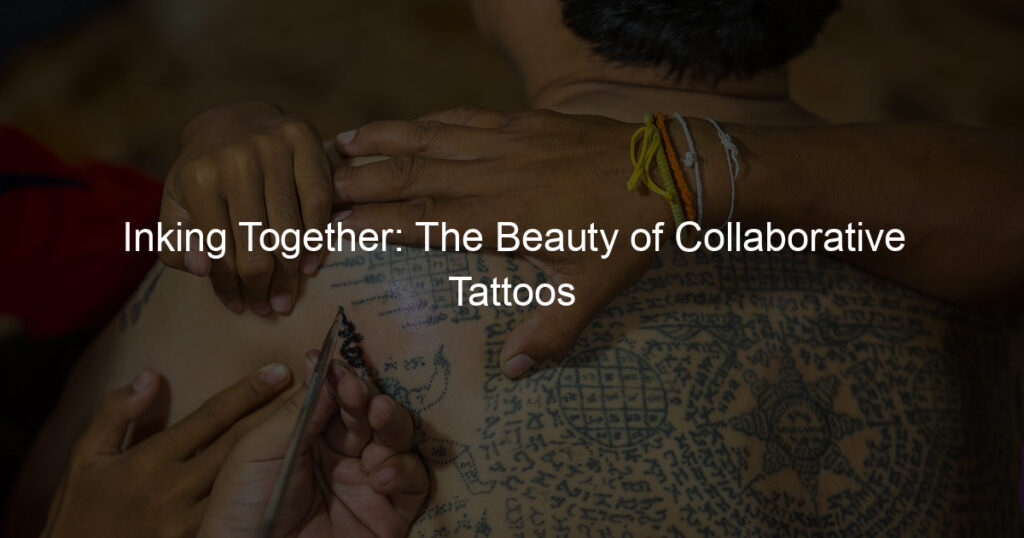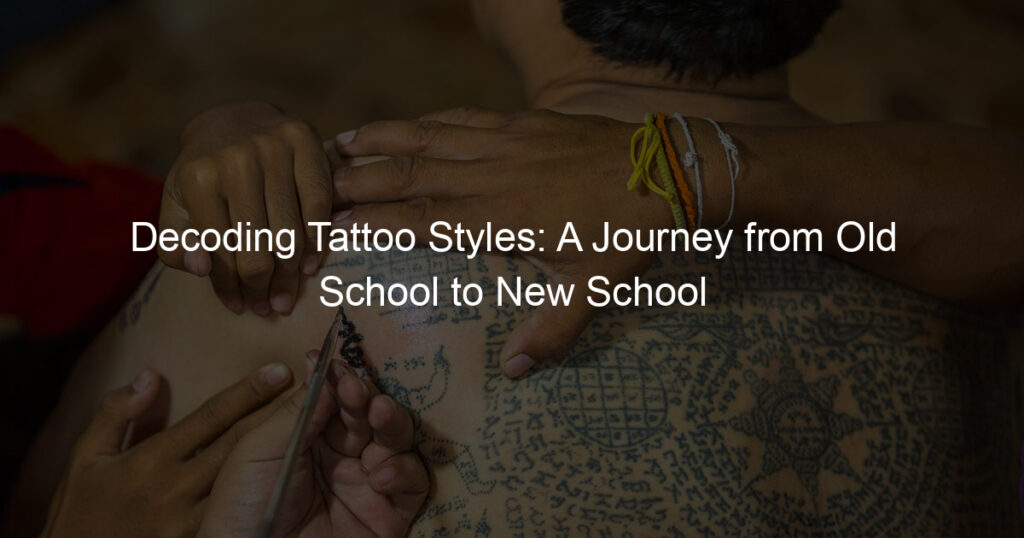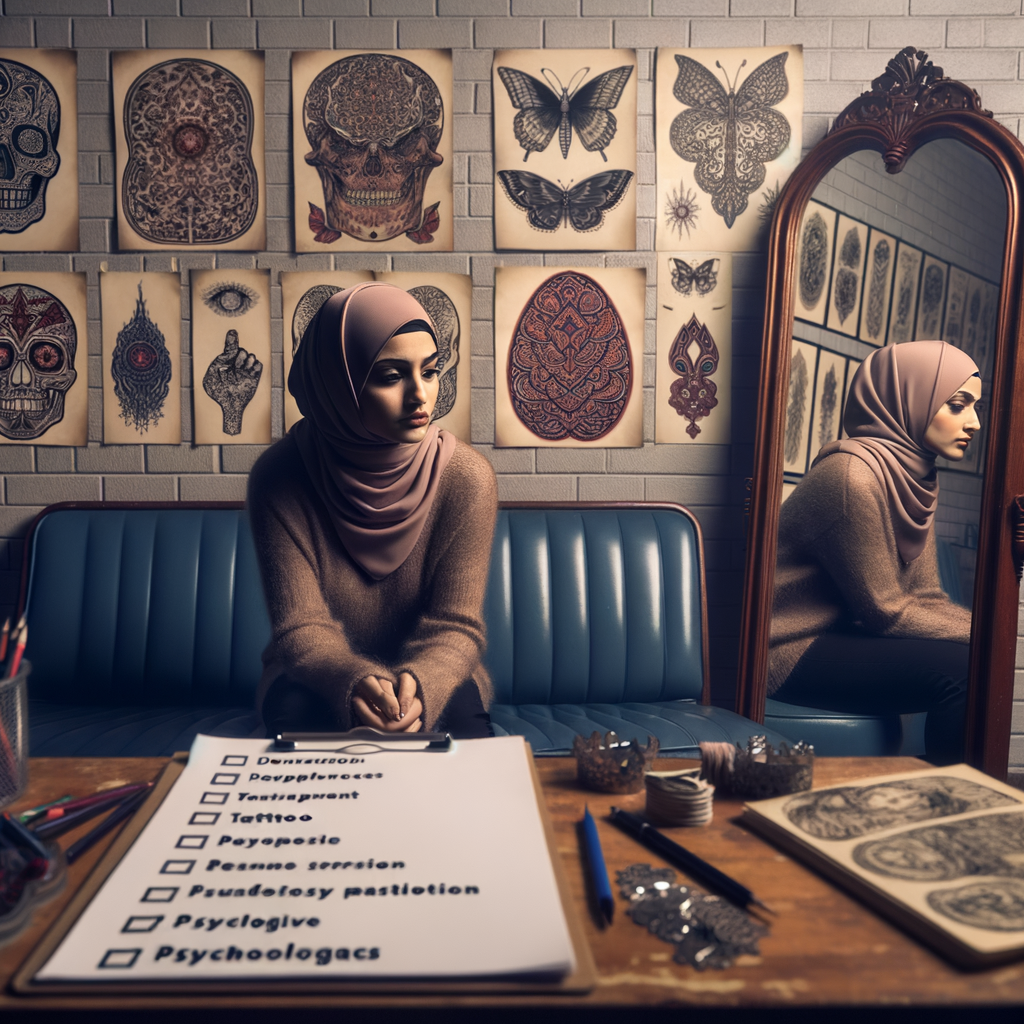
Introduction: Understanding Tattoos
Tattoos are more than just ink on skin. They are a form of self-expression, a symbol of personal freedom, and a reflection of cultural heritage. In this article, we will explore the cultural significance of tattoos, trace the evolution of tattooing, and discuss modern tattoo trends and their implications.
Tattoos have been a part of human culture for thousands of years. In ancient times, they were used to signify status, religious beliefs, and even as a form of punishment. Today, they are seen as a form of personal expression and individuality. They can represent a person’s beliefs, interests, or experiences. In some cultures, tattoos are still used as rites of passage or symbols of status and achievement.
The art of tattooing has evolved significantly over the centuries. From primitive tools and inks to modern tattoo machines and a wide range of colors, the process has become more sophisticated and safe. The designs have also changed, from simple symbols and patterns to intricate artworks that can cover large areas of the body. The acceptance of tattoos in society has also evolved, with tattoos becoming more mainstream in recent years.
Modern tattoo trends reflect the changing societal attitudes towards tattoos. More people are getting tattoos, and the designs are becoming more diverse and personal. This has led to the rise of custom tattoo designs, where the tattoo artist creates a unique design based on the client’s ideas and preferences. However, this trend also has implications. As tattoos become more common, there is a growing concern about the safety and quality of tattoo inks and procedures. There is also a debate about the appropriateness of certain tattoo designs and placements, especially in professional settings.
In the following sections, we will delve deeper into the psychology of tattoos, the process of selecting a tattoo, and the art and psychology of tattoo choices. Stay tuned to learn more about this fascinating form of self-expression.
The Psychology of Tattoos
Understanding the psychology behind tattoos can provide fascinating insights into why people choose to get inked. Let’s delve deeper into the psychological perspective of choosing tattoos.
Choosing Tattoos: A Psychological Perspective
-
- The role of personal identity in tattoo decision-making
One of the main reasons people get tattoos is to express their personal identity. Tattoos can be a form of self-expression, allowing individuals to showcase their unique personality, beliefs, or values. For instance, a person might choose a tattoo of a specific animal because they identify with its characteristics or symbolism. This decision is deeply rooted in their sense of self, making the tattoo a personal and meaningful part of their identity.
-
- Emotional connection to tattoos
Tattoos often hold significant emotional value for the wearer. They can commemorate important life events, honor loved ones, or symbolize personal growth and transformation. The process of getting a tattoo can also be a cathartic experience, helping individuals to process emotions or experiences. In a survey, 37% of tattooed individuals reported that their tattoos made them feel more emotionally resilient.
-
- Psychological reasons for tattoos: A deeper understanding
There are many psychological reasons why people choose to get tattoos. Some people use tattoos as a form of self-empowerment, helping them reclaim control over their bodies. Others may get tattoos as a way to cope with trauma or loss, using the physical act of tattooing as a form of healing. Tattoos can also serve as a visual reminder of personal achievements, goals, or values, acting as a constant source of motivation and inspiration.
In conclusion, the psychology of tattoos is complex and multifaceted, encompassing aspects of personal identity, emotional connection, and psychological motivations. Understanding these factors can help us appreciate the profound significance that tattoos can hold for the individuals who choose to get them.
Meaning Behind Tattoos: More Than Just Ink
When we look at tattoos, we often see more than just ink. They are a form of self-expression, a way to tell a story, and a symbol of personal growth and transformation. Let’s delve deeper into the meaning behind tattoos.
-
- Symbolism and personal narratives in tattoo choice
Tattoos often carry significant symbolism. They can represent personal beliefs, values, or experiences that have shaped an individual’s life. For instance, a person might choose a tattoo of a lion to symbolize their courage and strength. Others might opt for a specific flower or bird that holds a special meaning in their personal narrative. In a survey, 76% of respondents stated that their tattoos represented personal experiences or stories.
-
- How tattoos can represent personal growth or transformation
Tattoos can also signify personal growth or transformation. Someone might get a tattoo after overcoming a significant challenge or reaching a milestone in their life. For instance, a butterfly tattoo often symbolizes transformation, reflecting the creature’s journey from a caterpillar to a beautiful winged insect. In fact, 52% of people in a recent study stated that their tattoos symbolized a personal transformation or growth.
-
- The role of tattoos in memory and commemoration
Many people use tattoos as a way to remember and commemorate loved ones or significant events. A tattoo can serve as a permanent reminder of someone special or a momentous occasion. For example, a person might get a tattoo of a loved one’s name or a date that holds special significance. According to a survey, 68% of respondents had tattoos that served as a tribute to someone or something important in their lives.
In conclusion, tattoos are much more than just ink on skin. They are a powerful form of self-expression, a symbol of personal growth, and a way to commemorate significant moments or people. So, the next time you see a tattoo, remember that there’s likely a meaningful story behind it.
Tattoo Selection Process: A Deep Dive
Choosing a tattoo is a deeply personal decision, influenced by a variety of factors. In this section, we will explore the main elements that play a role in this process.
Factors Influencing Tattoo Choices
There are three primary factors that influence the selection of a tattoo: psychological factors, social influences, and personal experiences and emotions. Let’s delve into each one.
-
- Psychological factors in tattoo selection
Psychology plays a significant role in the decision-making process of getting a tattoo. Some people use tattoos as a form of self-expression, a way to showcase their individuality and uniqueness. Others may choose a design that represents a personal achievement or a significant life event. Tattoos can also serve as a form of self-empowerment, a reminder of one’s strength and resilience.
-
- Social influences on tattoo decisions
Social factors also have a significant impact on tattoo choices. The influence of friends, family, and social media can shape a person’s decision to get a tattoo and the design they choose. For instance, a person might decide to get a tattoo that matches one of their friends or a celebrity they admire. Social trends can also play a role, as certain tattoo designs may become popular due to their exposure on social media platforms.
-
- Impact of personal experiences and emotions on tattoo choice
Personal experiences and emotions are another major influence on tattoo selection. Many people choose tattoos that symbolize a significant event in their life, such as the birth of a child, the loss of a loved one, or a major accomplishment. These tattoos serve as a permanent reminder of these moments and the emotions associated with them. In addition, some people use tattoos as a form of healing, helping them cope with difficult experiences or emotions.
In conclusion, the process of selecting a tattoo is complex and deeply personal, influenced by a combination of psychological factors, social influences, and personal experiences and emotions. Understanding these factors can help us appreciate the significance and meaning behind each unique tattoo.
Case Study: Tattoo Decision-Making in Different Cultures
As we delve deeper into the tattoo selection process, it’s fascinating to observe how cultural backgrounds and traditions influence tattoo decisions. Let’s explore this through a comparative analysis, understanding of cultural symbolism, and how one’s cultural background can shape their tattoo choices.
-
- Comparative Analysis of Tattoo Trends in Various Cultures
Tattoos are a universal form of self-expression, but their designs and meanings can vary greatly across different cultures. For instance, in Polynesian cultures, tattoos often represent a person’s social status, while in Japan, they have historically been associated with the Yakuza, or organized crime. In Western cultures, tattoos have evolved from a mark of rebellion to a mainstream form of self-expression and art.
-
- Understanding Cultural Symbolism in Tattoos
Every culture has its unique symbols and meanings associated with tattoos. In Native American culture, for example, animal tattoos often symbolize the spirit or character traits of the animal. In contrast, Celtic tattoos usually involve intricate knotwork designs, symbolizing the interconnectedness of life. Understanding these symbols can provide a deeper appreciation of the tattoo art form and the cultural heritage it represents.
-
- How Cultural Background Influences Tattoo Choices
One’s cultural background plays a significant role in tattoo choices. People often choose designs that reflect their cultural heritage or beliefs. For example, someone from a Maori background might choose a traditional Maori tattoo, or “ta moko,” which is deeply rooted in their culture and history. Similarly, a person with a strong religious background might opt for a tattoo of a religious symbol or scripture. These choices reflect not just personal preferences, but also a connection to one’s roots and identity.
In conclusion, the world of tattoos is as diverse as the cultures they originate from. They are a reflection of our identities, beliefs, and heritage. So, the next time you see a tattoo, remember that it’s more than just ink on skin – it’s a story, a symbol, and a piece of art deeply rooted in culture and tradition.
Conclusion: The Art and Psychology of Tattoo Choices
As we wrap up our discussion on the art and psychology of tattoo choices, let’s revisit some of the key points we’ve covered, look ahead at future trends, and reflect on the emotional connection that tattoos can foster.
-
- Key takeaways on the psychology of tattoo choices
Our exploration into the psychology of tattoos has revealed that these body art pieces are more than just aesthetic choices. They often represent personal stories, beliefs, and identities. People choose specific tattoos as a form of self-expression, to commemorate significant life events, or to honor loved ones. The psychology behind these choices is complex and deeply personal.
-
- Future trends in tattoo psychology
Looking ahead, we can expect the psychology of tattoo choices to continue evolving. As societal norms and values shift, so too will the motivations and meanings behind tattoos. One emerging trend is the use of tattoos as a form of therapy, helping individuals cope with trauma or loss. Another is the rise of minimalist tattoos, reflecting a growing preference for simplicity and subtlety in self-expression.
-
- Final thoughts on the emotional connection to tattoos
Ultimately, the emotional connection to tattoos is what makes them so powerful. Whether it’s a small symbol that holds personal significance, or a large piece that tells a visual story, tattoos have the ability to convey emotions and experiences in a way that words often can’t. They serve as a permanent reminder of who we are, where we’ve been, and what we value.
In conclusion, tattoos are a fascinating intersection of art and psychology. They offer a unique window into the human psyche, revealing our desires, fears, and hopes. As we continue to explore and understand this art form, we can gain deeper insights into not only the individuals who choose to get tattooed, but also the broader cultural and societal trends that shape our choices.

